18 Tough Certifications That Are Worth The Effort In 2017

Security Is A Certification Gold Mine
Nowhere is the certification craze more pronounced than in cybersecurity, which accounts for five of the 18 certifications most worth having, according to Cary, N.C.-based business training and certification company Global Knowledge.
An additional four certifications Global Knowledge said it's worth having touch upon networking or virtualization, with competencies spanning the gamut from Cisco routers and switches to Citrix's virtualized environments to VMware's virtual infrastructure.
Nearly half of Global Knowledge survey respondents said they train specifically to prepare for certification, up from just 9 percent a decade ago. And 88 percent of professionals in the fields of network infrastructure and data center are today certified, according to Global Knowledge.
Here are 18 valuable certifications based on Global Knowledge site searches, feedback from instructors and survey response data.

18. Six Sigma
Six Sigma is a business methodology that uses data and analysis to improve business performance with the goal of eliminating mistakes, waste and rework, according to Global Knowledge. Certified professionals are paid well, with their value reflected in improved business performance.
The certification is unique in that there is no standard exam, Global Knowledge said, meaning that some organizations can certify an employee for simply taking a course or completing a project. Each candidate is required to have a leadership-approved project prior to certification training.
The entry-level Six Sigma Green Belt is held by 91 of 7,300 Americans and Canadians who responded to a Global Knowledge survey, and is reflected in an average annual salary of $103,701.
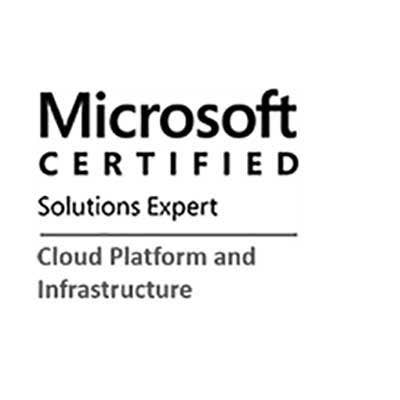
17. MCSE: Cloud Platform and Infrastructure
The Microsoft Certified Solutions Expert: Cloud Platform and Infrastructure certification prepares candidates for Windows deployments both on-premises and in the cloud, according to Global Knowledge. It provides expertise in the modern data center, cloud technologies, identity management, systems management, virtualization, storage and networking.
It builds on the foundation of associate-level Microsoft certifications focused around Windows 2012, Windows 2016, cloud platforms, or Linux on Azure, Global Knowledge said. The MCSE: Cloud Platform and Infrastructure is the successor to the MCSE: Server Infrastructure certification, which was retired in March 2017.
The MCSE: Server Infrastructure certification resulted in an average salary of $94,421 for the 329 survey respondents who hold it, according to Global Knowledge.
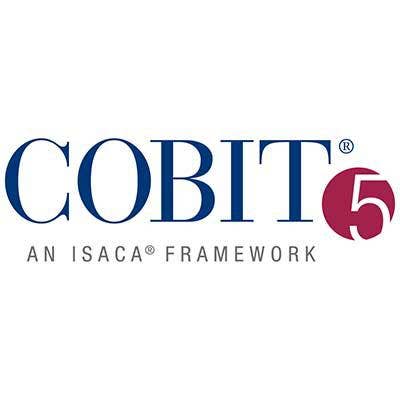
16. COBIT
With virtualization and the cloud moving many components outside of the physical IT department, Global Knowledge said IT governance has become one of the largest challenges in the industry. COBIT is a premier IT governance certification from ISACA that puts IT professionals in a unique position to align business objectives with IT.
A COBIT certification validates a candidate's knowledge of meeting stakeholder needs, covering the enterprise from end to end, applying a single integrated framework, enabling a holistic approach, and separating governance from management. It pairs well with ITIL by focusing on whether a process achieves its objective, according to Global Knowledge.
Governance certifications in total are held by 20 respondents, with an average salary of $117,078, Global Knowledge found.
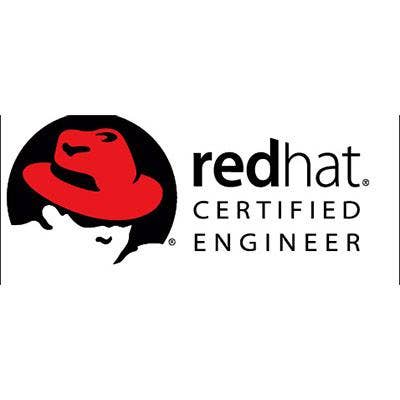
15. Red Hat Certified Engineer
RHCE is for senior Linux administrators seeking to demonstrate their ability around configuring networking services and security on servers running Linux, according to Global Knowledge. The certification allows Linux administrators to provide their senior-level expertise and real-world capabilities on what's considered to be the most rigorous and acclaimed Linux certification.
The RHCE exam doesn't consist of any multiple-choice questions, according to Global Knowledge. Instead, candidates are tested on how they perform and carry out tasks on an actual live system. The Red Hat Certified Systems Administrator (RHCSA) credential is a prerequisite.
This certification is held by 35 Global Knowledge survey respondents in the U.S. and Canada with an average salary of $103,606.
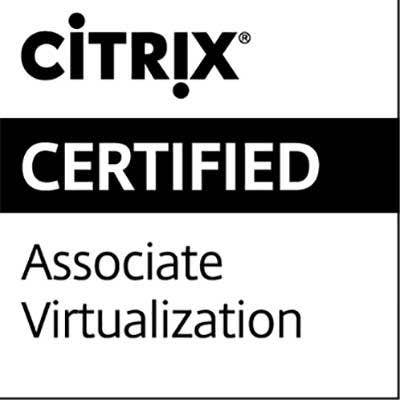
14. Citrix Certified Associate – Virtualization
CCA-V is the starting point for IT operators and managers that oversee XenDesktop 7 solutions, according to Global Knowledge. Systems engineers can get a 5 percent to 8 percent bump in pay by obtaining a Citrix certification.
To become a CCA-V, candidates must pass an exam covering how to manage, maintain, monitor and troubleshoot a Citrix XenDesktop 7 environment. Citrix-certified professionals are often pursuing new skills and knowledge, Global Knowledge said.
This certification is held by 241 Global Knowledge survey respondents with an average salary of $96,231, making it the 10th highest-paying certification held by at least 150 survey respondents.
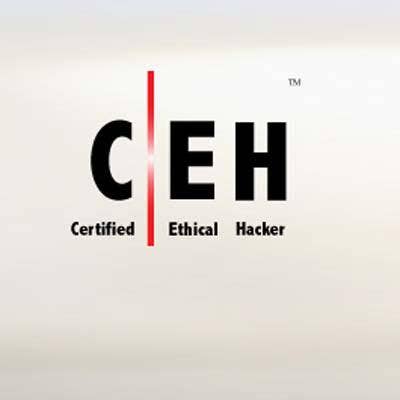
13. Certified Ethical Hacker
The vendor-neutral CEH is modeled for any IT professional who is concerned with the integrity of network infrastructure or threats to the cloud. It's a candidate's best opportunity to gain access to frequently used hacking tools so that the practitioner can spot vulnerabilities in its own network.
The CEH exam puts the candidate's hacker skills to work by grading the test-taker's ability to find weaknesses and holes in an organization's network defense. A CEH certification will fortify the application knowledge of security officers, auditors, security professionals, site administrators, and anyone who is concerned about the integrity of the network infrastructure.
A similar certificate also offered by the EC-Council – the Computer Hacking Forensic Investigator – is held by 21 Global Knowledge survey respondents and commands, who command an average salary of $91,684.
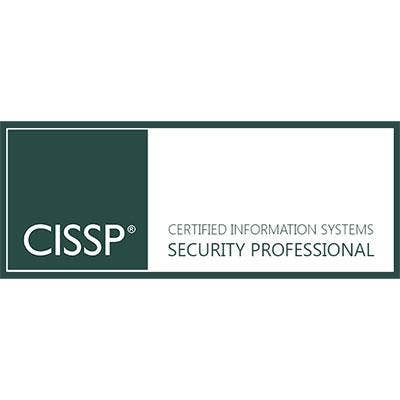
12. Certified Information Systems Security Professional
The CISSP tests a candidate's ability to define the architecture, design, management and controls that ensure a secure organization. The certification is so essential that it's often a security staff requirement by organizations.
Candidates for the CISSP must have five years of work experience, and recertification is required every three years. The whopping six-hour, 250-question exam focuses on everything from security and risk management to asset and software development security to security engineering, assessment, testing and operations.
This certification is held by 304 Global Knowledge survey respondents, with salaries averaging $118,179, making it the fourth-highest-paying certification held by at least 150 survey respondents.
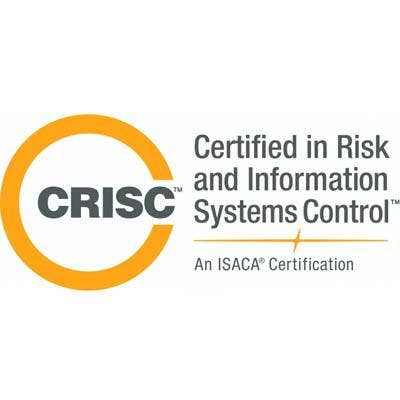
11. Certified in Risk and Information Systems Control
The CRISC is designed for IT professionals, project managers and other individuals whose job is to identify and manage IT and business risks through information systems controls. Some 80 percent of ISACA-certified professionals were trained in some form over the past year, according to Global Knowledge.
Candidates taking the CRISC exam have four hours to answer 150 questions around risk identification, risk assessment, risk response and mitigation, and risk and control monitoring and reporting. Certificate-holders are required to attain at least 20 continuing professional education hours per year and 120 hours every three years.
This certification is held by 159 Global Knowledge survey respondents with an average salary of $127,507, making it the top-paying certification held by at least 150 survey respondents.
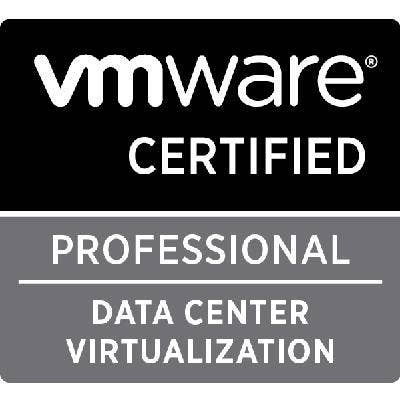
10. VMware Certified Professional 6 – Data Center Virtualization
The VCP6-DCV assesses a candidate's ability to build a scalable virtual infrastructure using vSphere, addressing installation, configuration and optimization. Getting certified in VCP6-DCV is a great chance for a practitioner to stand out as a virtual infrastructure specialist, according to Global Knowledge.
New candidates are required to take one course, as well as the vSphere 6 Foundations and the VCP6-DCV exams, according to Global Knowledge. Migration or upgrade candidates are only required to take either the VCP6-DCV assessment or the VCP6-DCV Delta exam.
This certification is held by 41 Global Knowledge survey respondents in the U.S. and Canada, who make an average annual salary of $99,257.
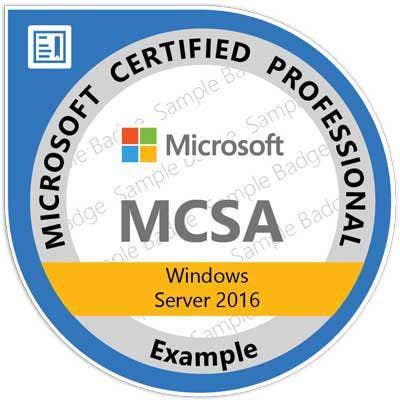
9. MCSA: Windows Server 2016
The Microsoft Certified Solutions Associate: Windows Server 2016 provides users with the skills necessary to reduce costs and deliver better business value, according to Global Knowledge. It's ideal for network administrators, computer systems administrators or computer network specialists.
Windows Server 2016 was launched in September 2016 with several new features, including nano server; containers; storage space direct; PowerShell enhancements; and Hyper-V enhancements. Windows Server credentials are the fourth most popular category of certifications, Global Knowledge found.
This certification is held by 22 Global Knowledge survey respondents earning an average annual salary of $90,767.
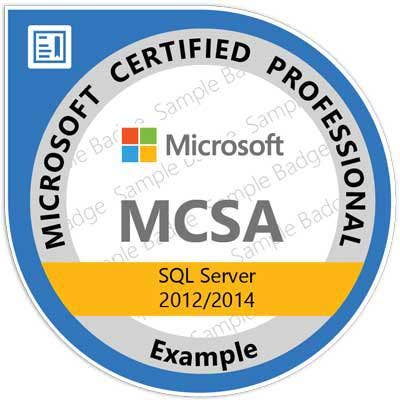
8. MCSA: SQL Server 2012/2014
The Microsoft Certified Solutions Associate: SQL Server 2012/2014 is for individuals interested in data management, and confirms the essential skills needed to manage Microsoft's SQL Server, according to Global Knowledge. It's a good place to start for candidates interested in working as a software developer, database developer, or database analyst.
To obtain the certificate, participants must pass three exams covering querying, administration, and implementing a data warehouse. Some 44 percent of Microsoft certificate-holders have a SQL Server certification, according to Global Knowledge.
The MCSA: SQL Server 2012/2014 certification is held by 188 Global Knowledge survey respondents with an average annual salary of $90,303, making it the 15th highest-paying certification with at least 150 respondents.
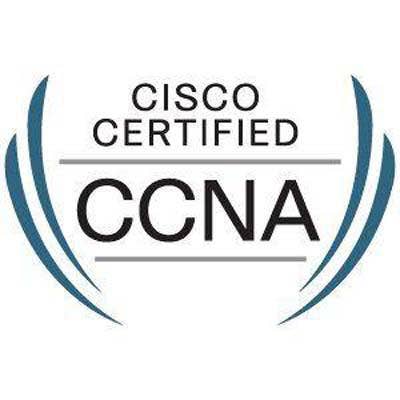
7. CCNA Security
The Cisco Certified Network Associate Security validates a candidate's skills in developing an infrastructure and recognizing vulnerabilities in their network. The certificate is for individuals focused on combating and mitigating threats in a Cisco network.
Just like all Cisco certifications, the CCNA Security is available for three years, according to Global Knowledge. A CCENT certification or ICND1 v3.0 – Interconnecting Cisco Networking Devices, Part 1 is recommended before pursuing the credential.
The CCNA Security is held by 185 Global Knowledge survey respondents who have an average annual salary of $84,652, making it the 18th highest-paying certification with at least 150 respondents.
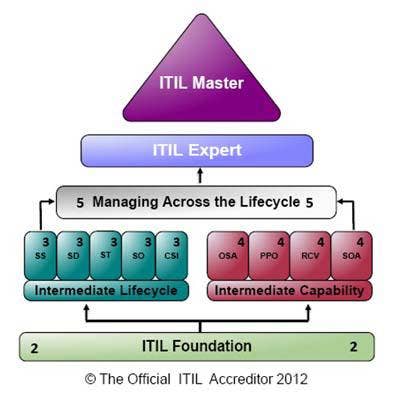
6. ITIL Foundation
ITIL Foundation helps candidates understand the IT life cycle, putting certified professionals in the driver's seat when it comes to supporting business outcomes and managing risk. ITIL-certified professionals are often at the forefront when an organization changes the way it does business, Global Knowledge said.
The ITIL Foundation course helps IT professionals understand ITIL terminology, processes, and innovations that can change the way IT professionals do business, according to Global Knowledge. This class is a prerequisite for intermediate-level ITIL courses.
This certification is held by 891 Global Knowledge survey respondents with an average salary of $93,648, making it the 12th highest-paying certification with at least 150 respondents.
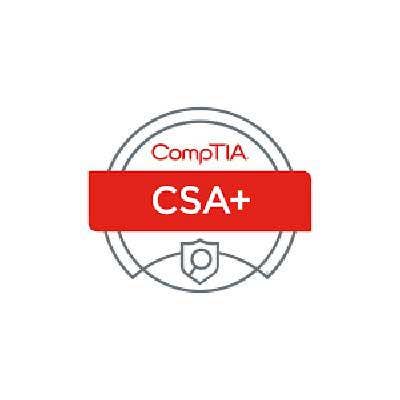
5. CompTIA Security+
CompTIA Security+ provides the knowledge necessary to anticipate, react to and guard against cyberattacks, according to Global Knowledge. With the addition of cloud and an increase in the complexity and frequency of data breaches, Global Knowledge said organizations are more concerned with security than ever before.
Candidates for Security+ are required to have at least two years of experience as an IT administrator with a focus on security, Global Knowledge said, as well as having day-to-day information security experience. A CompTIA Network+ certification is also recommended, according to Global Knowledge.
The CompTIA Security+ certification is held by 677 survey respondents with an average salary of $87.673, making it the 17th highest-paying certification with at least 150 respondents.
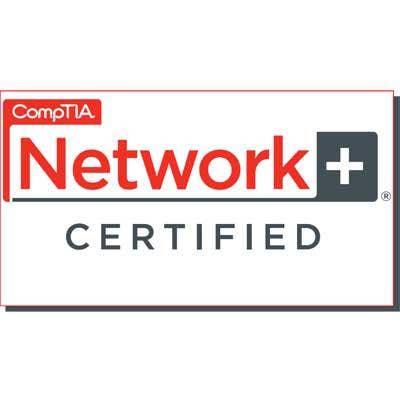
4. CompTIA Network+
CompTIA Network+ proves a technician's competency in managing, maintaining, troubleshooting, installing and configuring basic network infrastructure, according to Global Knowledge. Since its launch in 1999, more than 235,000 people have become certified.
CompTIA Network+ is so well-respected that Microsoft, Cisco and other brands have included it as part of their certification tracks. It's recommended that candidates are also certified in CompTIA A+ and have at least nine months of experience in network support, administration or education, Global Knowledge said.
This certification is held by 758 Global Knowledge survey respondents with an average salary of $79,459, making it the 20th highest-paying certification with at least 150 respondents.
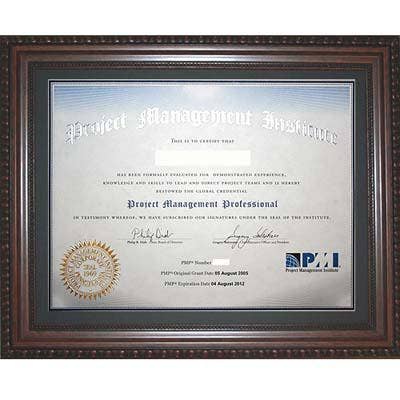
3. Project Management Professional
PMP is a great credential for candidates looking to move from a technical to a managerial track, according to Global Knowledge. Earning and maintaining the PMP demonstrates a solid level of experience and competency in effectively managing projects and project teams.
The PMP exam tests five areas relating to a project's life cycle, and is not specialized to any particular industry, Global Knowledge said. Requirements include a four-year degree and at least three years of project management experience, with 4,500 hours leading projects and 35 hours of project management education.
This certification is held by 292 of the Global Knowledge survey respondents, and offers an average annual salary of $105,415, making it the sixth highest-paid certification with at least 150 respondents.
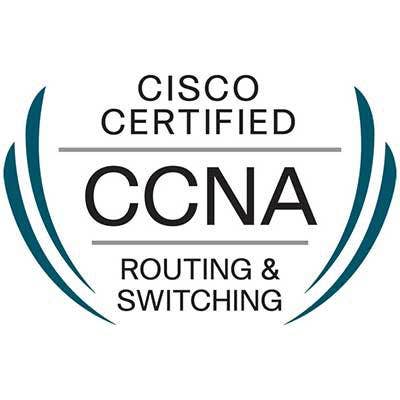
2. CCNA Routing and Switching
The Cisco Certified Network Associate is a foundational dive into the skills needed to plan, implement, verify and troubleshoot complex network solutions. Global Knowledge said the certification fills the skills gap that occurs when technology outpaces training.
The cloud and changing technologies such as wireless controllers and quality of service elements have put an emphasis on networking importance, according to Global Knowledge. With mobile devices proliferating and the emergence of the Internet of Things, the skills required on a core network engineer are constantly evolving.
This certification is held by 797 Global Knowledge survey respondents with an average annual salary of $80,932, making it the 19th highest-paid certification with at least 150 respondents.

1. AWS Certified Solutions Architect – Associate
The AWS Certified Solutions Architect – Associate is a perfect fit for IT professionals looking to fill the cloud hiring void, according to Global Knowledge. It is ideal for individuals who have experience designing distributed applications and systems on the AWS platform.
The 80-minute exam includes multiple-choice and multiple-answer questions, according to Global Knowledge. Certificate holders are required to get recertified every two years by either taking a recertification exam or passing the professional-level exam.
There are 303 Global Knowledge survey respondents who have received this certification, earning an average salary of $119,233. This makes it the third highest-paying certification with at least 150 respondents.